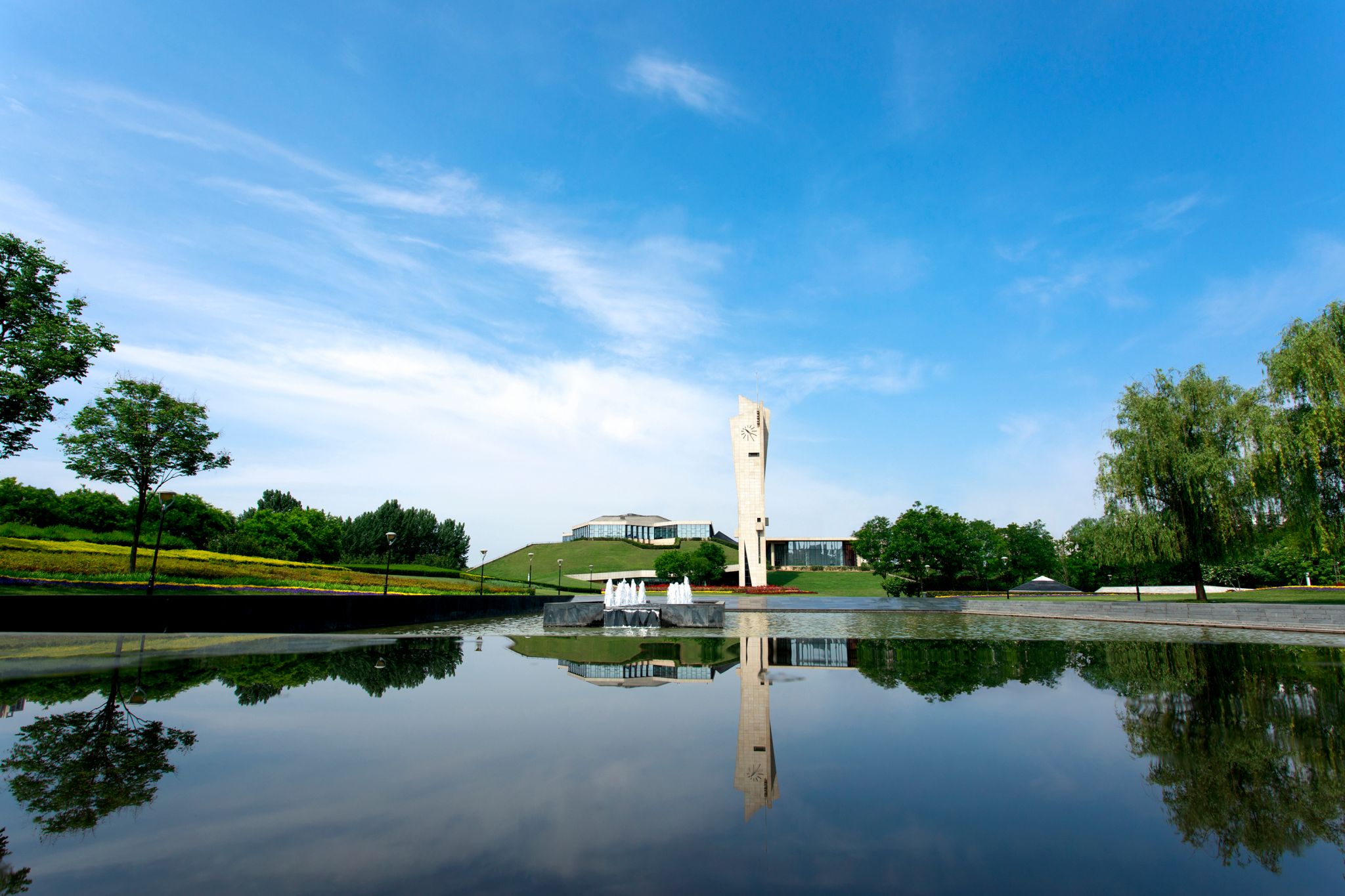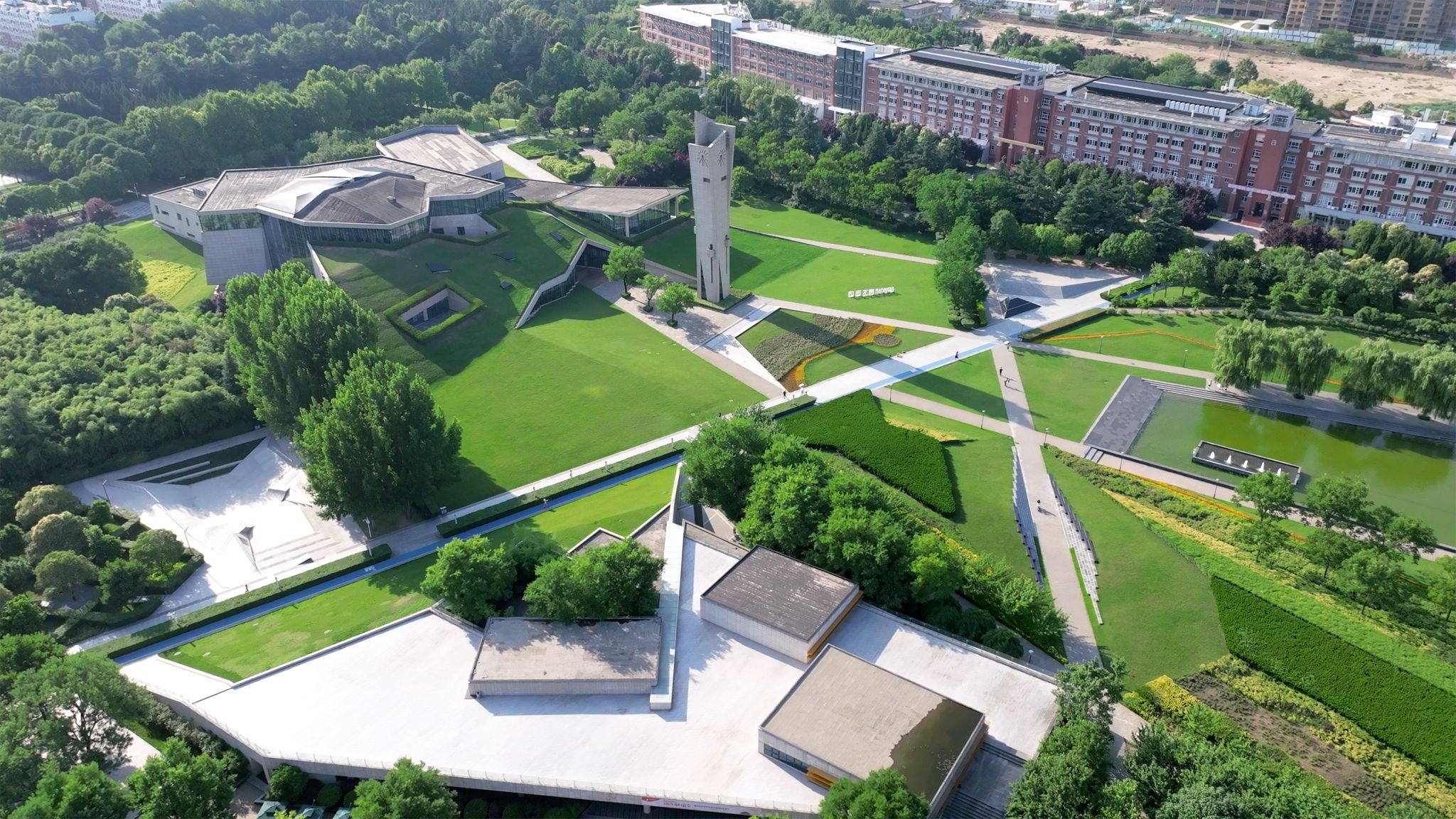
Since 2025, Xi'an Eurasia University has clearly proposed to move towards an "innovative university" at its internal conferences and on external media platforms. As a university famous for "innovation," why does it repeatedly emphasize the "innovative university" at the 30th anniversary? What is really an "innovative university"? What are its similarities and differences with the "entrepreneurial university" proposed by Burton Clark, a higher education scholar in the United States? How will Xi'an Eurasia University build itself into an innovative university?
For these questions, Pan Dongyan, a special consultant of Xi'an Eurasia University and senior business management book creator, interviewed Hu Jianbo, Chairman of Xi'an Eurasia University. The interview details are as follows:
01
"Innovative university" is a reaction against universities that lack innovation
Pan Dongyan: At the 2024 year-end summary conference, Xi'an Eurasia University unequivocally proposed its vision of becoming an innovative university. How would you define an "innovative university"?
Hu Jianbo: Despite the frequent references to "innovative universities," the concept remains ambiguous. I believe it primarily represents a reaction against those universities that lack innovation. Xi'an Eurasia University has been pursuing the path to becoming an innovative university since 2005, when it was upgraded to a bachelor's degree-granting institution. Specifically, innovation for universities mainly reflects in three aspects: education and teaching, social services, and organizational management.
Regarding education and teaching, Xi'an Eurasia University adheres to the "student-centered" philosophy, distinguishing itself in higher education in China. In social services, Xi'an Eurasia University meticulously advances the establishment of an "Organized Research Units (ORU)" social service framework, fostering a community with a shared future for it and society. As for organizational and management practices, the university comprehensively adopts innovative enterprise management models to enable highly effective and efficient functional operations.

Furthermore, the cultivation and development of innovative universities require substantial support from a conducive external environment, particularly through robust policies for higher education. In this context, we provide recommendations to relevant authorities through research on educational policies. For instance, we have contributed efforts to combine the enrollment processes of second-batch and third-batch universities and achieved certain results.
Pan Dongyan: Given that the definition of an innovative university is still unclear, let's consider it from the opposite way. What kind of university is not an "innovative university"?
Hu Jianbo: In recent years, many universities have frequently mentioned the concept of "innovative universities." This is a positive signal. However, in establishing themselves as innovative universities, many institutions still rely on resource investment and produce vertical scientific research results. This approach, I believe, often lacks competitiveness and is challenging to sustain in building an application-oriented innovative university.
As defined by Schumpeter, "innovation is the process of setting up a new production function," meaning the process of creating "new combinations" of existing production factors and conditions through entrepreneurial activities, thereby achieving favorable economic outcomes. From Schumpeter's definition, an innovative university must prioritize efficiency, which involves achieving a high input-output ratio, ideally with minimal input and maximal output. This necessitates embracing innovation. Additionally, innovative universities should be market-oriented, producing results that receive strong market recognition. Notably, our current longitudinal scientific research assessments also emphasize the importance of market recognition. Finally, innovative universities must possess the capability for sustainable development. Ideally, they should achieve true self-reliance. Such sustainability efforts could fail if their resource input is disproportionately high compared to the output achieved.
Pan Dongyan: What are the most important measures taken by Xi'an Eurasia University to become an innovative university in recent years?
Hu Jianbo: From my perspective, the paramount objective for an application-oriented innovative university is to "foster individuals with high moral standards," followed by achieving substantial market recognition. For higher education institutions, market acceptance is primarily demonstrated through two aspects: first, graduates being well-received by employers; second, generating societal value through extensive community services. In student cultivation, we have adopted a new "employer-oriented" concept to ensure graduates align more closely with employer requirements; regarding social services, we are dedicated to establishing an "organized research institution" service model to provide social services directly.

Earlier this year, the CPC Central Committee and the State Council issued The 2024-2035 Master Plan on Building China into a Leading Country in Education, explicitly advocating for creating a "new form of diversified school operation and industry-education integration." This includes constructing a tri-functional platform for "talent cultivation, scientific research, and technology transfer," thereby addressing regional industrial needs and bolstering the synergy between education and economic progress. Eurasia University Xi'an has correspondingly implemented specific measures for execution.
The pivotal measure involves transforming the educational philosophy from the previously singular "student-centered" to "employer-oriented and student-centered" (ESC). When it comes to concrete actions, the primary focus is on thoroughly advancing the establishment of a social service framework for "organized scientific research units," dedicating efforts to providing external social services, considering this as a significant representation of the university's value generation. Some commendable results have been achieved in this regard.
02
Building an "innovative university" is a challenging yet correct way
Pan Dongyan: Why is Xi'an Eurasia University so determined to keep to the path of building itself into an innovative university?
Hu Jianbo: Xi'an Eurasia University firmly follows the development path of an innovative university, which is related not only to its history but also to my obsession with "innovation." This characteristic is also directly reflected in the university's motto, "Pluralitas in unitatem": "Unitatem" signifies compatibility with the environment, and "pluralitas" embodies value creation through innovation.

If you are familiar with the history of Xi'an Eurasia University's development, you would know that "innovation" has consistently been a fundamental element of the university's organizational identity. Even before its promotion as a bachelor's degree-granting institution in 2005, Xi'an Eurasia University consistently emphasized innovation in driving various aspects of its operations, significantly contributing to its remarkable achievements during its first decade.
After 2005, Xi'an Eurasia University has set the development goal of becoming an innovative university. Over more than a decade of comprehensive transformation and reform, it has evolved from a relatively traditional institution to an application-oriented innovative university. This transformation included reorganizing the campus environment, teaching facilities, and organizational culture, enabling it to gradually become a university aligning with the ideal that appeals to people's aspirations.
Pan Dongyan: How do you evaluate the achievements of Xi'an Eurasia University in establishing itself as an innovative university?
Hu Jianbo: Unlike numerous other universities, Xi'an Eurasia University struggles in developing under limited resources. Even so, we have achieved significant accomplishments.
At Xi'an Eurasia University, the international campus ambiance, exemplary organizational management, and positive features of faculty and students contribute positively to society. These reflect the values created by us. We should recognize our worth and persistently create our unique value, embracing the joy of innovation and experiencing the strength of creativity throughout this journey.

Xi'an Eurasia University aims to be a key contributor to regional economic growth and a cultural icon within the city of Xi'an, thus establishing itself as a century-old prestigious institution and ultimately becoming the most respected private university in China. In the foreseeable future, only taking the way of building ourselves into an innovative university, can we realize our vision.
Pan Dongyan: Every year, many colleges and universities visit Xi'an Eurasia University for investigation and study. What do you think are their main concerns about the development path of innovative universities?
Hu Jianbo: Upon arriving at Xi'an Eurasia University, colleagues unanimously remarked, "Eurasia University is remarkable." They commended the international campus atmosphere, the efficient organizational structure, the "student-centered" pedagogical reforms, and the faculty's exemplary professionalism. Our university also excels in digital transformation and brand communication, leading in these areas, and gradually expanding its influence in social services... All these are achievements we take pride in.
However, Xi'an Eurasia University has yet to demonstrate outstanding performance in evaluations and awards sponsored by government authorities among peer institutions. This constitutes a primary concern for numerous institutions visiting our university. Being true to oneself requires significant courage.
Universities of all types must adapt to and integrate with the external environment. We fully recognize that establishing ourselves as an innovative university necessitates advancement under the guidance of fostering virtue through education and compliance with operational standards set by regulatory authorities. Hence, considerable efforts have recently been directed towards enhancing various educational standards and achieving mutual compatibility.
03
"Innovative universities" are also "entrepreneurial universities"
Pan Dongyan: Burton Clark, an esteemed American scholar specializing in higher education, once introduced the concept of the "entrepreneurial university," defining it explicitly with five distinctive characteristics: a strengthened steering core, an expanded developmental periphery, a diversified funding base, a stimulated academic heartland, and an integrated entrepreneurial culture. If this concept is relevant to Xi'an Eurasia University's efforts to become an innovative university, what do you think of the difference between "entrepreneurial universities" and "innovative universities"?
Hu Jianbo: I think "innovative universities" are equivalent to "entrepreneurial universities." Xi'an Eurasia University possesses the five characteristics of an entrepreneurial university. Regarding a strengthened steering core, Xi'an Eurasia University has consistently demonstrated outstanding leadership and maintains a proficient middle and senior management team. Concerning a stimulated academic heartland, over a decade ago, Xi'an Eurasia University reformed its management mechanism centered on "delegating power to the lower levels." It decentralized operational authority to its departments. In recent years, this power has even extended further to program heads. This has invigorated its schools and programs. In terms of an integrated entrepreneurial culture, Xi'an Eurasia University fosters a pervasive atmosphere of innovation and entrepreneurship. When it comes to an expanded developmental periphery and a diversified funding base, Xi'an Eurasia University has continuously pursued relevant initiatives for many years. Although its achievements do not yet fully align with Burton Clark's standards, notable progress has been made. These five characteristics are also the focal points of our work for the coming years.

We chose not to adopt the term "entrepreneurial university" because it could be misinterpreted in China's context of developing higher education. In essence, the entrepreneurial university advocated by Burton Clark embodies the vision that Xi'an Eurasia University aspires to achieve. Throughout its development process, the university has intuitively or deliberately established emblematic traits that align with the five characteristics of this concept. Furthermore, at the milestone of the 30th anniversary of Xi'an Eurasia University's establishment, we must rejuvenate our entrepreneurial spirit to reach even greater achievements in the next three decades. To summarize, when mentioning "innovative university," we should understand that it is "entrepreneurial university" in essence.
Pan Dongyan: How will Xi'an Eurasia University proceed to deeply advance the construction of an innovative university?
Hu Jianbo: The year 2025 marks the conclusion of the "14th Five-Year Plan." Over the past five years, Xi'an Eurasia University has achieved tangible results in "balanced development," addressed gaps in various educational indicators, and established a solid foundation for subsequent innovative development. 2025 is also the year of completing the formulation of the "15th Five-Year Plan." Currently, our university has fully launched relevant initiatives and defined our planning theme as building an "innovative university." This means that in the upcoming five years, Xi'an Eurasia University will extensively implement innovation-related initiatives, striving for innovation-driven development throughout the entire institution and its system.
Over the past 30 years, "innovation" has been pervasive in Xi'an Eurasia University's daily educational practices. However, in many instances, it might have been executed unconsciously or without sufficient emphasis. In this regard, for the five years to come, we will further emphasize enhancing "innovation" as a fundamental organizational trait while focusing on comprehensively advancing related efforts guided by the "15th Five-Year Plan." This approach aims to enable all faculty members at Xi'an Eurasia University to consciously, systematically, and effectively foster innovation within a structured platform, thereby achieving tangible results. Such endeavors will also drive broader organizational innovation and propel the university toward deeper progress in becoming an innovative institution.
(Note: Zhao Junjing, Special Assistant to the Principal and Director of the Institute of Eurasia Education and Innovation, also contributed to this article.)





